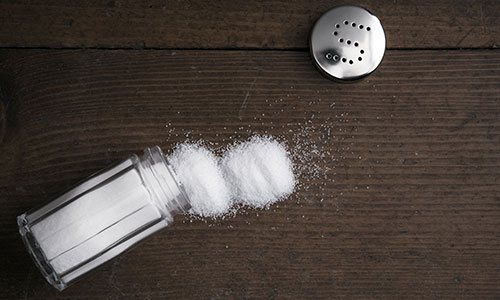5 nutrition tips for when PMS strikes
Millions of women suffer from premenstrual syndrome (PMS), otherwise known as premenstrual tension (PMT). From bloating, tiredness and sugar cravings, to headaches, low mood and irritability, it can be a trying time.
PMS is related to an imbalance in female hormones during the luteal phase of the monthly cycle. This change in hormone levels may affect the levels of ‘feel-good’ chemicals, such as serotonin, in your brain. It may also trigger stress hormones, increase fluid retention and interfere with blood sugar balance. Here’s how to use good nutrition to your advantage when PMS strikes.
Choose hormone balancing nutrients
Not getting enough of the right nutrients may contribute to an imbalance in hormones, resulting in some of the symptoms of PMS. Key nutrients to get in your system include vitamin B6, vitamin E, calcium, zinc, magnesium and omega 3. These are found in green leafy vegetables, beans, peas, lentils, nuts, seeds, dried fruit, ginger, vegetable oils, organic dairy foods, red meat, liver, oily fish, seafood and eggs.
Read our recipe: Sardine pâté to take the edge of PMS
Don’t neglect blood sugar
Managing your blood sugar levels could be key to reducing any cravings and irritability in the lead up to your period. There are three golden rules:
- Avoid sugary foods and refined carbohydrates (e.g. crisps, white flour, white rice, etc.)
- Include protein (e.g., meat, fish, eggs, beans, nuts) and fibre (vegetables, beans, lentils, wholegrains) with every meal
- Avoid stimulants such as caffeine and alcohol.
Fibre up so you can empty out
In some women a build-up of excess hormones can interfere with hormone balance. Ensuring regular bowel movements through the consumption of enough fibre, fluid and exercise is key to eliminating excess hormones. Get fibre with vegetables, beans, lentils and wholegrains. It’s also crucial to support your liver by limiting your consumption of alcohol, caffeine and food additives.
Go organic
There are certain man-made chemicals found in plastics, pesticides, cosmetics and household cleaners that can disrupt human hormones. Women tend to have a greater exposure to these ‘xenoestrogens’ because of all the beauty products we put on our skin and in our hair. So buy organic food if your budget permits and choose natural cosmetics, toiletries and cleaning products.
Drop the salt to beat the bloat

If you tend to retain water in the lead up to your period it is important to watch your salt intake and follow the recommended guidelines of no more than 6g of salt per day (or 2.4g of sodium). Excess salt can increase water retention and contribute to feeling bloated.
If your symptoms are more severe, speak to a GP or women’s health specialist. You may find this article handy: 4 ways to keep PMS under control.
Last updated Tuesday 20 September 2022
First published on Friday 6 May 2016
